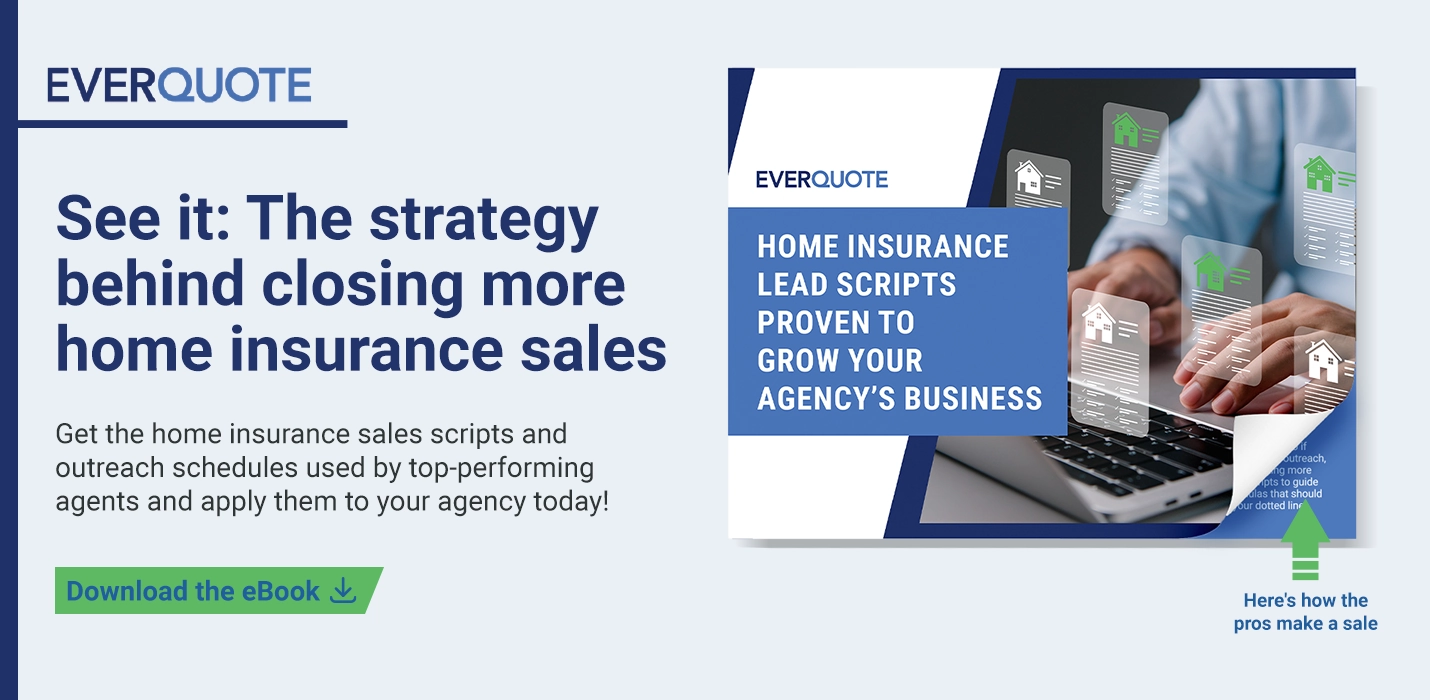

Whether you're a brand new agent or one with several decades of experience, the idea of opening a new insurance agency probably seems daunting—where do you start?
One of the first things you’ll need to do is come up with a business plan for your insurance agency. After all, you can walk into a bank or a potential investor’s office looking for funding, but you won’t get very far unless you have a robust insurance agency business plan that proves you’re on the right track toward turning a profit in the near future.
Follow the steps below when building out your insurance business plan to maximize your chances of securing funding and getting your new agency off to a strong start.
In business plan terms, the executive summary is the driving force behind your other decisions. It should explain why you’re starting your agency. The business summary is similar, but it should narrow down your “why” into a list of “hows.”
Jot your answers down so you can refer back to them as you move forward.
Many large agencies, such as Allstate and Farmers, work with captive agents who can only sell insurance for that specific provider. Independent agents, on the other hand, can sell insurance for multiple providers, but they get locked out of working with the big-name captive carriers who only work with captive agents. (Read more about captive agents here and get a seasoned agent’s POV on both types of agents here.)
Before you can nail down the details of the rest of your business plan, you’ll have to make a choice between these two options.
Though it might seem like a tedious process, conducting a thorough market analysis is crucial to your success. Analyzing your local market—including the backgrounds, shopping behaviors, and preferences of your target customers—gives you the insights you’ll need to attract these folks to your business.
Your market analysis will look a little different depending on whether you prefer to be a captive or an independent agent. The state you live in is another factor that will affect your analysis—in fact, it may even influence your decision to be captive or independent.
Take a close look at the demographics of your region.
These questions are all important, but pay particular attention to the last one. If you open an agency without a plan for client retention, you’re going to struggle. And, unfortunately, this is one of the most overlooked aspects of an insurance agency business plan.
It’s one thing to know there are X number of potential clients living in your state, but it’s quite another to have a plan that will help you reach out to those folks and land your first policy sales.
Some investors will require a list of leads before they’ll even consider funding your agency. Even if it’s not a requirement, it’s always a good idea to have a pipeline ready to go. This is where getting set-up for purchasing warm leads from EverQuote can put you in a great position for success.
Plus, tackling this step before you even open your doors will help you better understand the costs you’ll incur—and therefore how much startup funding you will need.
You might also consider other options, such as placing ads in local newspapers, going to networking events, investing in digital marketing, sponsoring local Little League teams, or asking for referrals.
Many new agencies fail because their owners overlooked something critical during startup. Do your best to look at your financial plans from every angle:
Take detailed notes of your calculations, and try to run the numbers a few different ways to obtain a conservative outcome, a likely outcome, and a “best case scenario.”
Your notes will be incredibly valuable as you move forward, but you’ll need a way to present them clearly and concisely in a way that looks attractive to investors.
Loan officers and investors don’t want to read long-form essays detailing your business background and your ideas for the future. Keep your format simple and straightforward, with clear sections that answer the questions investors will want to know.
We recommend a format similar to the following:
You may not secure funding for your agency immediately. Even if you do, you’ll likely find that your real world numbers don’t match up exactly with your calculated projections. Plus, carriers frequently change their underwriting policies, and the economy itself is always in a state of flux.
Keep your business plan current by updating the information anytime circumstances change.
One of the scariest parts about starting a new agency is not being certain where and when you’ll be able to start making sales.
Skip the fear and the unknown and go right to making sales with warm real-time leads from EverQuote. Whether you’re still trying to find startup funding or your doors are already open, you can always boost your business and maximize your chances of a steady income by working with EverQuote.


Chris Durling is a visionary leader in P&C insurance sales and distribution, with over 10 years of experience in the industry.

You can’t run a successful agency without getting to know people.
If you sell insurance, networking.

For insurance agents, retaining a current customer is less costly and less time-consuming than.

If you’re a P&C agent, you’ve probably built your agency on auto or home insurance sales. There’s.

In the grand scheme of digital insurance agency marketing, paid advertisements might seem like a.

If you’re at all familiar with digital marketing—maybe you’ve dabbled in it a bit or even just done.

Scott Grates, insurance agent and co-founder of Insurance Agency Optimization, is renowned for his.

When it comes to nurturing your insurance agency’s online business reputation, there are numerous.

If the year 2023 had a buzzword, that buzzword was definitely AI. Artificial intelligence took off.